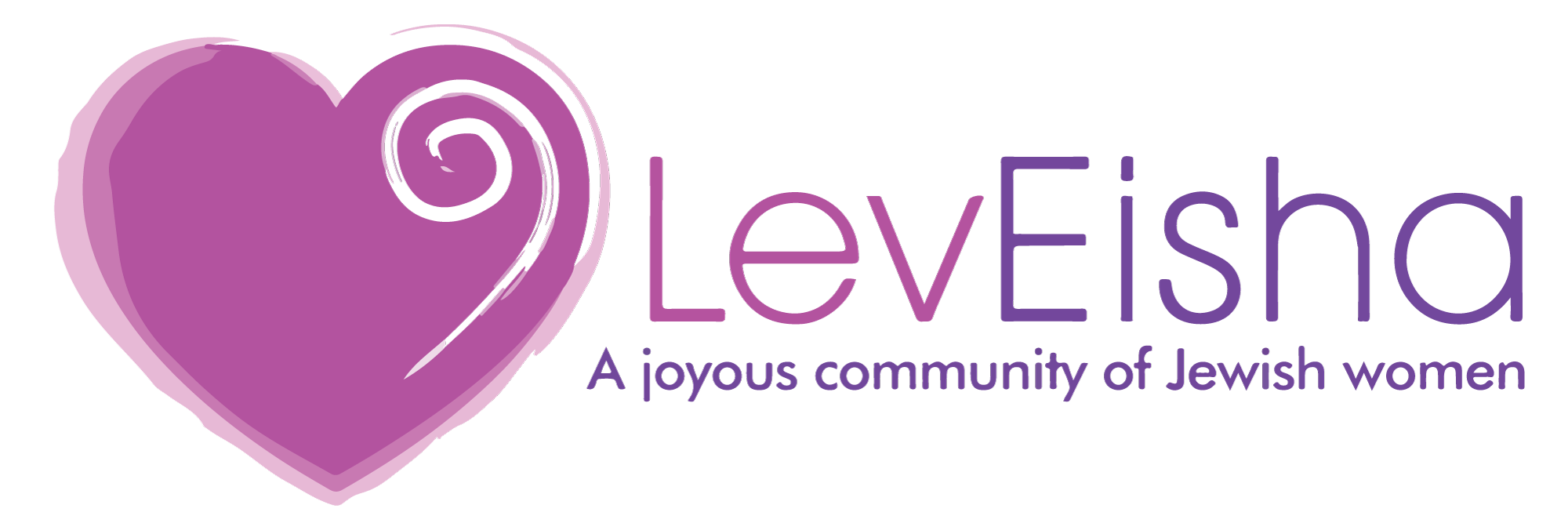We are very excited to have an article about Lev Eisha published in the Jewish Journal! Please follow this link to view the original article: Jewish Journal Article

The board members of Lev Eisha, equipped with their tambourines. Group founder Rabbi Toba August
is in middle row, right. Photo courtesy of Lev Eisha
Lev Eisha is a modern-day Red Tent, except instead of gathering in a portable desert shelter, this women’s minyan congregates just miles from the beach in a West Los Angeles synagogue on the vast, summer-camp-like premises of Vista Del Mar.
Don’t be totally misled — there are a handful of men who attend the services on the first Saturday of each month, including the occasional tag-along husband. One man even attended services solo recently, trying it out after undergoing some tough times. He said he was in search of a healing service, especially one with no shortage of “maternal energy.”
What makes the services so particularly comforting?
“Our goal was to find a place where people can come to be very joyous or very sad, or anything in between,” said Rabbi Toba August, 64, who founded the group about 15 years ago. “I really wanted to have a place where the emotions are available, where you’re feeling something and connecting with something deep within your soul, your psyche, your essential being.”
At Lev Eisha (Hebrew for “a woman’s heart”), a key part of that is accomplished through constant music. It has its own particular groove, fronted by the prowess of cantorial soloist Cindy Paley on acoustic guitar, two backup vocalists, a percussionist, a violinist and a whole congregation playing tambourines.
In the midst of the service, women get up on a whim and dance around the pews, exuding a joyful reverence. At times, the minyan feels more like a hippie colony, which makes sense when you consider August is a product of the 1960s flower power counterculture. But the service can be devout and traditional, too, as when the Torah service starts and the ark opens. The energy changes, becoming more silent and thoughtful.
Each woman here has her own reason, her own story. Board member Janis Cohen, for example, who was recently named the next president of Lev Eisha, was raised as the only daughter in a testosterone-fueled household. She said she was originally skeptical of the concept of a women’s minyan.
“I was turned off by the women’s liberation movement because it has a tendency to bash men,” she said.
But after attending a service at the suggestion of a friend, it soon became apparent that Lev Eisha was an inclusive community, not at all what she expected.
Another member, Barbara Axelband, said that after battling cancer and undergoing a mastectomy, it was the thought of August that pulled her through. When Axelband’s granddaughter was having a bat mitzvah, she told her daughter that she’d attend under one condition: The service didn’t conflict with her commitment to Lev Eisha. She got her wish.
After many years with the minyan, Axelband — who, like many in the group, dons a yarmulke — makes sure not to miss a single service. But that’s a typical story with these women. Lev Eisha has become their community, their monthly spiritual shot of adrenaline. Current president Barbara Brown said she schedules family trips around the gatherings, and the group even has its own dedicated resident poet, Sarah Barash.
“I’ve missed only one service in 10 years,” said Barash, who attributes the development of her poetic craft completely to August and the congregation.
Barash isn’t the only congregant who said she experienced self-fulfillment after attending services.
“When I come here, I’m not playing a role. I’m not somebody’s caregiver, daughter or wife. I’m me,” said Robin Winston, Lev Eisha’s head of membership.
Lev Eisha started as an annual weekend at Camp Ramah, part of the University of Judaism (now American Jewish University) Wagner Women’s Retreat, a getaway designated solely for women. But over the past 15 years, the community has transformed into what it is now — a full-fledged congregation with some 100 people attending a typical service.
That’s not to say Lev Eisha didn’t encounter some major shifts along the way. Until five years ago, services took place behind the main sanctuary of the Conservative shul Adat Shalom in West Los Angeles. That was when August was that synagogue’s rabbi as well, a position she no longer has.
A New York native, August was among the first class of women to enter the Jewish Theological Seminary’s rabbinical school in 1984. Nowadays, August is the rabbi at Temple Shalom of the South Bay, a Reconstructionist congregation in Hermosa Beach, and she teaches rabbinics at the transdenominational Academy for Jewish Religion, California.
“I have three part-time jobs, but that’s three board meetings, three columns, three newsletters,” she said as her voice trailed off into a listing of threes. “Three this, three that.”
She said she tries to divide her time evenly among her responsibilities, not to mention reserving some down time for herself and her husband.
And although she initially started her career as a Conservative rabbi, August said her Judaism is constantly evolving, becoming more meditative and personal.
“The rabbi I was at a Conservative shul was not the person I really am. But at Lev Eisha, I’m totally able to be myself,” she said.
At the unaffiliated Lev Eisha, August is free to design her own brand of Judaism.
“There’s a Judaism for everybody,” August said. “You’ve got to find your own way back.”
